iHeartDogs is reader-supported. When you buy via links on our site, we may earn an affiliate commission at no extra cost to you.
We love to share food with our dogs, and since fruits and vegetables are healthy for us, we often assume that they’re healthy for our pets, too. This is often the case, but that certainly doesn’t mean it’s always the case. In fact, there are some fruits and vegetables that are not only bad for dogs, but downright toxic.
So if you plan on sharing some snacks with your pup, make sure you don’t feed him anything you find on this list!
Related Post: 20 Fruits & Vegetables Your Dog Will Love!
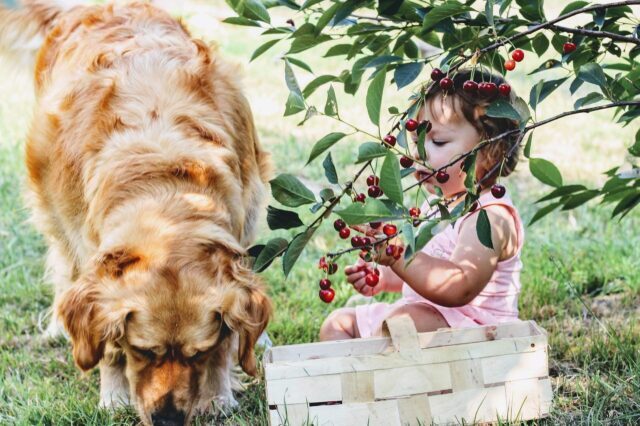
Be prepared and act fast: Keep Dr. Cuddles’ ReadyRESCUE emergency detoxifier on hand if you have a dog who likes to dig through the trash, counter-surf, or sneak treats they shouldn’t. ReadyRESCUE is a veterinary-grade detoxifier that can buy you precious time on your way to the vet if your dog eats toxic items including chocolate, grapes, onions, and more.
What Fruits Are Bad For Dogs?
1. Grapes/Raisins
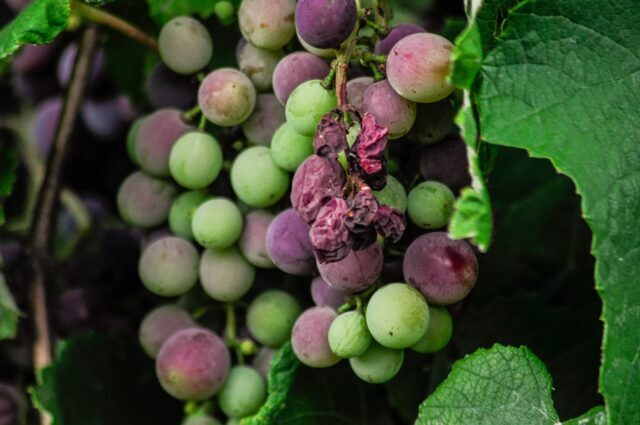
The fact that grapes and raisins are toxic to dogs is becoming common knowledge among pet owners, and for good reason! They are toxic. While some dogs can consume grapes and/or raisins with no symptoms, it’s simply just not worth the risk. This is because consuming grapes or raisins can actually lead to irreversible kidney damage. So it’s best to make sure these are far out of reach of your pup.
2. Cherries
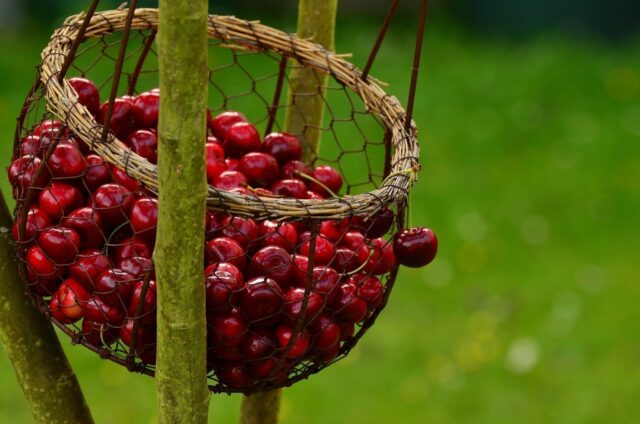
There are many types of cherries, all of which are pretty popular snack foods. It’s no wonder why – they’re delicious! While the pulp of the fruit is safe for dogs to eat, the plant and pit are moderately toxic to our dogs and can result in respiratory failure and death. In fact, the plants and pits contain cyanide, so it’s no surprise that they are toxic. Be sure to keep your dog away from cherry plants, and feed only the pulp if you’re going to share with your pooch.
3. Apple Seeds

Another fruit that is generally safe for dogs, apples should be fed with care. Apple seeds contain cyanide and are very toxic to our dogs. While dogs typically have to eat quite a bit of apple seeds in order to suffer the effects, it’s not unheard of. Many dogs will eat just about anything! So if you notice your pup has gotten into your produce basket, make sure he hasn’t consumed too many apples. If you feed them as a snack, better to be safe than sorry and avoid feeding the core.
4. Currants
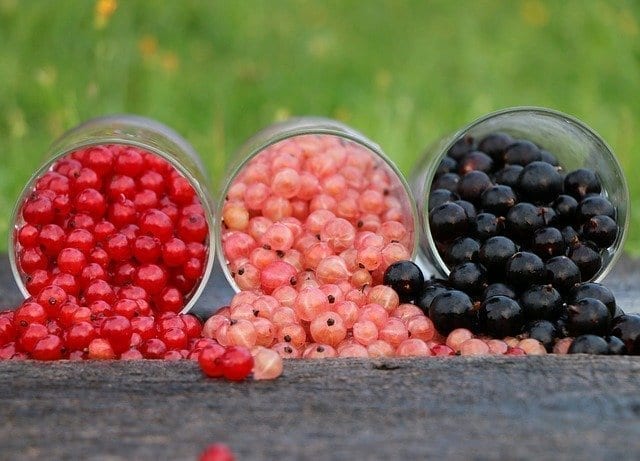
While you might be familiar with grapes and raisins being dangerously toxic to dogs, currants might catch you by surprise. But currants carry the same level of severe toxicity that grapes and raisins do. Even if you don’t notice sudden vomiting and diarrhea after your dog consumes currants, take your dog to the veterinarian. Just like the other small fruit, currants can cause severe renal failure.
5, 6 & 7. Apricots, Peaches & Plums
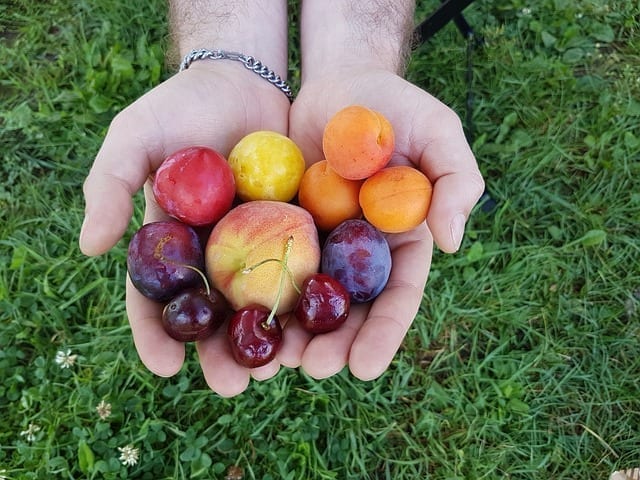
Like cherries, the seeds, leaves, and stems of apricot plants are toxic to dogs. While they are able to consume the pulp of the fruit with no ill effects, caution should be taken if your dog has access to any other parts of the plant. These plants also contain cyanide and can result in respiratory failure and death.
8, 9, 10 & 11. Citrus Fruits (Lemons, Limes, Oranges & Grapefruits)

While oranges, lemons, limes and grapefruits are certainly not toxic to dogs, they are very acidic and can cause digestive upset if fed in large quantities. Oranges are also high in sugar while lemons and limes are so sour most dogs wouldn’t eat them anyway.
Related: Best Greens for Dogs Supplements
12. Dried Fruits
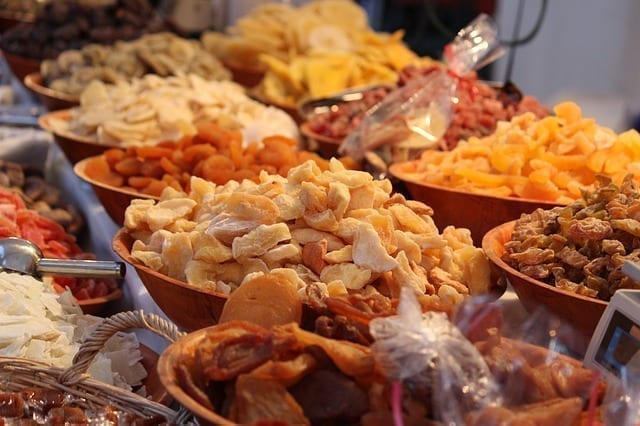
The process of drying fruits like dates, figs, and apricots concentrates the sugars, making them much too sweet for dogs. Choose fresh blueberries or apple slices (minus the seeds!) instead.
13. Wild Berries
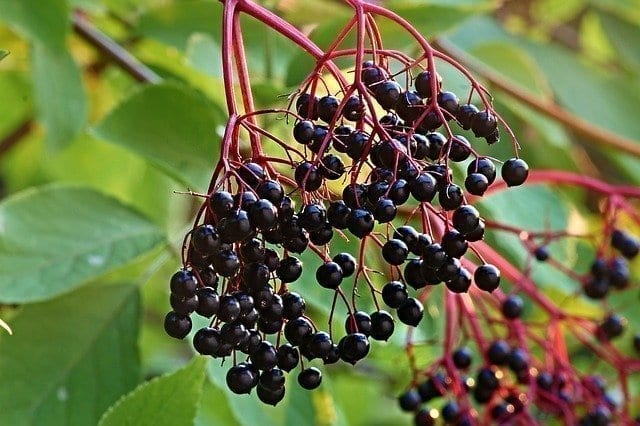
Most berries are packed with nutrients and disease-fighting antioxidants, but if you are not 100% sure what they are, it is best to leave wild berries be. Rowan, holly, juniper and elderberries all grow wild in North America and are harmful or poisonous to dogs. Protecting them from snatching a wild snack is yet another great reason to keep your dog on a leash during walks and hikes.
14. Avocados

According to the ASPCA, the leaves, fruit, seeds, and bark of avocados contain persin, a chemical that can cause vomiting and diarrhea in dogs. Some pups are especially sensitive to persin so it is best to keep your dog guac-free. Additionally, the stone at the center of the avocado can be a serious choking hazard. avocado toxicity.
Some experts disagree that avocados are harmful to dogs and instead feel they are a good source of healthy fats. Before making a decision to feed your dog avocado, we recommend doing your research and consulting your vet.
15. Tomato Plants
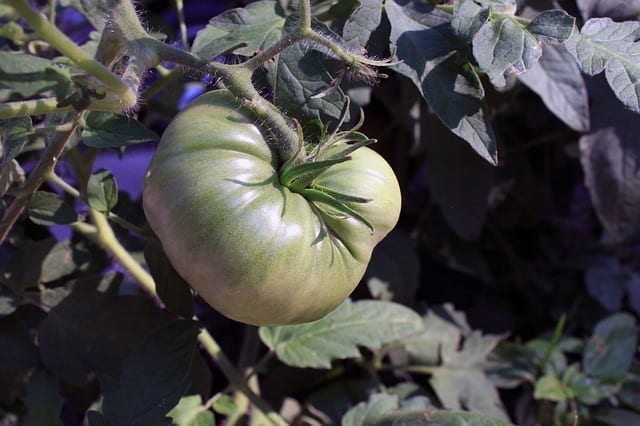
While the actual red tomato can be beneficial to our dogs, the plant itself is bad for dogs. The stems and leaves of the tomato plant, as well as the unripe fruit, can cause gastrointestinal upset. While your pooch will need to consume quite a bit of the plant to be dangerously affected, it’s best to make sure your pup can’t get into your garden and eat these plants.
Be prepared and act fast: Keep Dr. Cuddles’ ReadyRESCUE emergency detoxifier on hand if you have a dog who likes to dig through the trash, counter-surf, or sneak treats they shouldn’t. ReadyRESCUE is a veterinary-grade detoxifier that can buy you precious time on your way to the vet if your dog eats toxic items including chocolate, grapes, onions, and more.
What Vegetables Are Bad For Dogs?
16. Raw & Green Potatoes
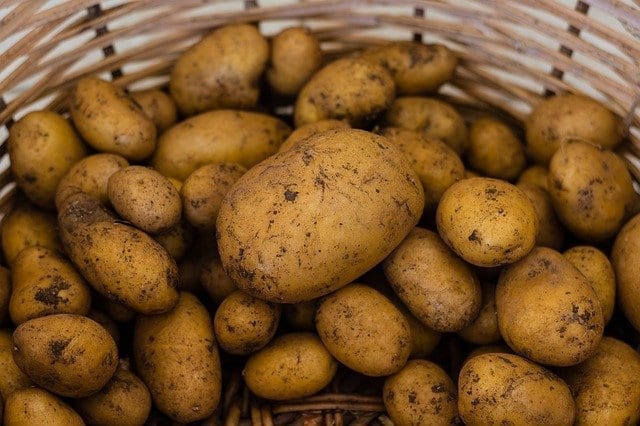
This might seem surprising, considering potatoes are often found in quality dog foods. But unripe, green, and raw potatoes are toxic to our dogs. In fact, consuming any of these varieties are toxic to humans as well! Symptoms of potato toxicity in dogs include nausea, vomiting, seizures and heart irregularities.
17. Mushrooms
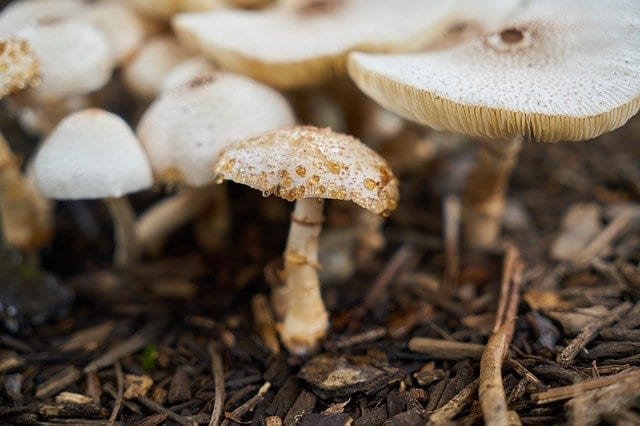
While only a small number of mushroom species are toxic to our dogs, it’s important to make sure you aren’t feeding the wrong ones if you ever share them with your dog. If you’re unable to identify a mushroom species quickly, it’s imperative that you take your dog to the veterinarian immediately after consumption. Mushroom toxicity is known to be fatal in dogs, resulting from seizures, tremors, and organ failure. However, healthy mushrooms used in supplements can be beneficial for canines.
18. Rhubarb
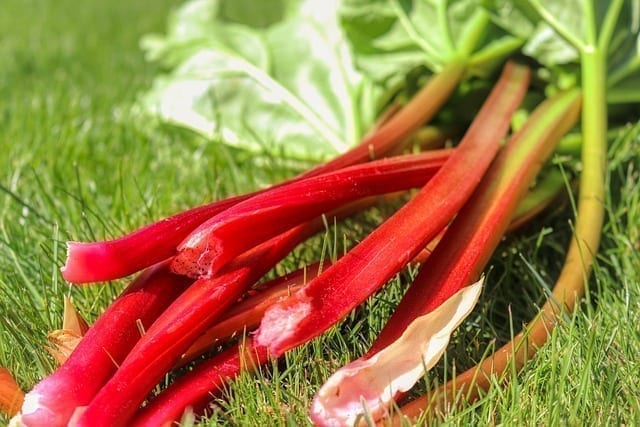
Although this vegetable can make a delicious pie for humans, it should never be given to our canine friends. The leaves and stems of rhubarb deplete the calcium levels in our dogs’ bodies. This can result in renal failure as well as other medical problems.
19. Onions

Symptoms of onion toxicity include lethargy, elevated heart and respiratory rates, pale gums, and even collapse. In fact, all vegetables in the Allium genus are very bad for dogs including scallions, shallots, leeks, and chives. Garlic can also cause problems, but only in large quantities. A small amount of garlic is actually a great flea preventative.
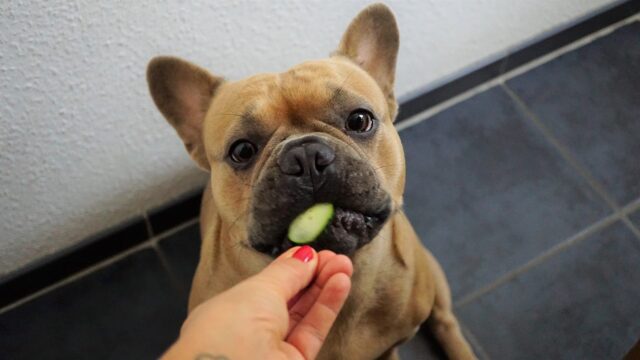
Like garlic, some of the fruits and vegetables on this list are relatively harmless unless ingested in large quantities. Accidentally sharing a bite of avocado is unlikely to cause a problem, but a handful of grapes could be deadly. Consider this list when deciding which foods to bring into your home and sharing with your dog.
Be prepared and act fast: Keep Dr. Cuddles’ ReadyRESCUE emergency detoxifier on hand if you have a dog who likes to dig through the trash, counter-surf, or sneak treats they shouldn’t. ReadyRESCUE is a veterinary-grade detoxifier that can buy you precious time on your way to the vet if your dog eats toxic items including chocolate, grapes, onions, and more.
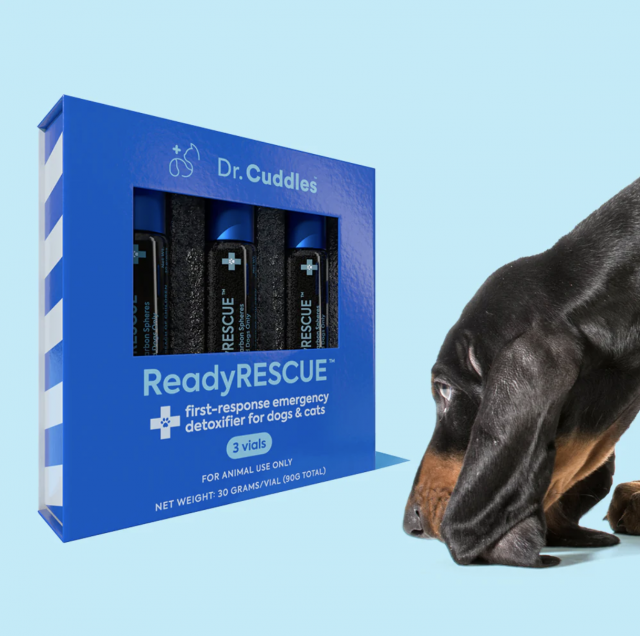
 Toledo, United States.
Toledo, United States.